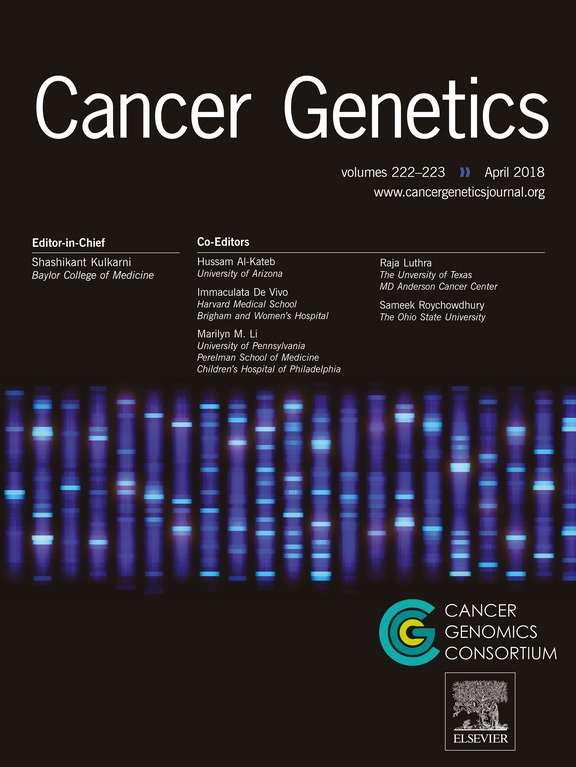12:00 PM - 1:00 PM EST
Tuesday, February 21, 2023
9:00 am PST / 12:00 pm EST
This webinar will showcase two of the poster winners from the 2022 CGC Annual Meeting.
Copy number alterations are commonly seen in childhood brain tumors and may help predict survival
Brain and central nervous system tumors are the most common form of solid tumor cancers and the second most common cancer overall among children. Although advances have been made in understanding the genomics of childhood brain tumors, the role of copy number alterations (CNAs) has not been fully characterized. While genomes of childhood brain tumor patients are generally considered to be relatively stable diploid genomes, analysis of a subset of pretreatment diagnostic samples from a cohort of 84 deceased patients with a variety of brain cancer diagnoses from Washington University revealed widespread alterations, suggesting CNAs may play a larger role in childhood brain tumors than originally thought. Low-pass whole genome sequencing of these samples showed that 75 out 84 patients had detectable presence of CNAs (Percentage genome altered (total altered bp/3.2?10^9 bp)?100%: mean 16%, median 7%, range 0-50%). Preliminary results examining correlations between the percentage of the genome that was copy number altered and event free or overall survival indicated that CNA percentage may have prognostic value. To explore these results further, 200 additional samples from the Pediatric Brain Tumor Atlas curated by The Children’s Brain Tumor Network were analyzed, revealing similar trends in copy number alteration. Additionally, alterations that were recurrently detected across samples were identified and similar analyses were performed to determine whether certain alterations or patterns of alteration could be predictive of event free or overall survival. 219 alterations were identified as significantly recurrently mutated and of these, 22 alterations were associated with changes in overall survival.
Sharon Freshour is a PhD candidate in the Human and Statistical Genetics program at Washington University in St. Louis. She graduated from St. Edward’s University in 2016 with a B.S. in Mathematics. She is interested in utilizing next generation sequencing and bioinformatic analysis to understand the genomic landscape of cancer and how it relates to treatment response. Her current research topics include using whole genome sequencing to explore copy number alterations in childhood brain tumors and using single cell RNA sequencing to understand mechanisms of response to checkpoint inhibitor treatment in a mouse model of bladder cancer.
Single-cell RNA sequencing and co-occurring cellular state analysis of high-grade serous ovarian cancer
High-grade serous carcinoma (HGSC) is the most lethal subtype of ovarian cancer, and a majority of patients are diagnosed at advanced stages. One standard-of-care is neoadjuvant chemotherapy followed by cytoreductive surgery, however up to 80% of HGSC patients develop recurrent disease. There exists a critical need to better understand the features of this tumor microenvironment that may highlight potential therapeutic targets, help stratify chemotherapy responders from non-responders, and uncover novel cell states that may serve as prognostic or predictive biomarkers.
We obtained multiple biopsies from five patients with advanced-stage HGSC, both pre- and post-treatment, and analyzed these samples using single-cell RNAseq. We identified 20 distinct transcriptional clusters of cells, including a well-defined tumor subset enriched for EPCAM and KRT8. We annotated each cluster using known marker genes, and additionally validated these data through genome-wide copy number and developmental maturity analyses. We then performed transcriptome deconvolution to identify co-occurring transcriptional states using EcoTyper.
We then performed bulk RNAseq on paired pre- and post-treatment tumor biopsies from 23 HGSC patients. Applying our fingerprints of ecotypes from the scRNA-seq data, we identified multiple distinct transcriptional states within the pre- and post-treatment HGSC tumor microenvironment, which were enriched for distinct co-occurring states comprised of multiple immunologic lineages, including CD4 T and NK cell states. We plan to validate these ecotypes using spatial transcriptomics and compare clinical outcomes across transcriptional states to determine the potential prognostic or predictive implications of our discoveries.
Nicholas Semenkovich is a physician scientist and clinical fellow in Endocrinology, Metabolism, and Lipid Research at Washington University in St. Louis. He is currently a postdoctoral scholar with Dr. Aadel Chaudhuri working on cell-free DNA. Nicholas is developing machine learning methods to analyze cell free DNA and provide insights into chronic and metabolic disease (in addition to oncology). Prior to his fellowship, Nicholas completed an Internal Medicine residency at the Brigham and Women’s Hospital. He completed MD/PhD training at Washington University with Dr. Jeff Gordon exploring the impact of the gut microbiota on host epigenetic signaling, and completed his undergrad at MIT in Computer Science.

